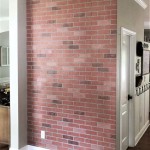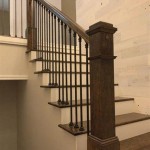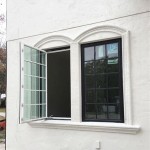How Much Does It Cost to Replace a Prehung Interior Door?
Replacing an interior door can significantly refresh a room's appearance and improve functionality. Prehung doors, which come already mounted in their frame, simplify the installation process. However, understanding the costs involved is crucial for effective budgeting. Several factors influence the overall expense, including the door's material, style, hardware, and labor costs.
Door Material Costs: The material significantly impacts the price. Basic hollow-core doors are the most economical, ranging from $50 to $150. Solid-core doors offer better sound insulation and durability but come at a higher price point, typically between $100 and $300. Solid wood doors, prized for their elegance and longevity, represent the premium segment, costing anywhere from $200 to over $1,000, depending on the wood species and craftsmanship.
Door Style and Features: Door styles range from simple flat panel doors to more intricate designs featuring raised panels, glass inserts, or decorative carvings. Naturally, more complex designs and premium features like etched glass or custom wood carving will increase the cost. Standard sizes are generally more affordable than custom sizes, which often require specialized manufacturing.
Prehung Door Frame Costs: The frame included with a prehung door also contributes to the overall expense. Standard frames typically cost between $50 and $150. However, factors like material (wood, composite, or metal) and size contribute to price variations. Upgrading to a more robust or aesthetically pleasing frame material will invariably increase the cost.
Hardware Costs: Hardware choices like doorknobs, hinges, and locks can significantly influence the final price. Basic hardware sets can be purchased for $20 to $50. However, opting for designer hardware or specialized security features can push the cost upwards of $100 or more per door.
Labor Costs for Installation Professional installation is often recommended for prehung doors to ensure proper fit and function. Labor costs vary depending on the complexity of the installation and the contractor's rates. A straightforward installation might cost between $100 and $200 per door. However, factors like non-standard door sizes, existing frame modifications, or unforeseen complications can increase labor expenses.
Additional Costs to Consider: Several supplementary expenses may be incurred during a door replacement project. Removing the old door and frame often involves disposal fees. Repairing any damage to the surrounding drywall or trim might also be necessary. If the new door requires a different size opening, additional framing work will add to the overall cost. Painting or staining the new door and frame to match existing décor should also be factored into the budget.
Obtaining Accurate Estimates: Getting multiple estimates from reputable contractors is essential for accurate budgeting. Providing contractors with detailed information about the door material, style, hardware preferences, and any existing structural challenges will help them provide precise cost estimations. Contractors should be able to itemize their quotes, breaking down material and labor costs for transparency.
Cost Breakdown Example: To illustrate a potential cost scenario, consider replacing a standard-size interior door with a solid-core prehung door and basic hardware. The door itself might cost $150, the prehung frame $75, and the hardware $30. Adding installation costs of $150 could bring the total to around $405. This example serves as a general illustration, and actual costs can vary significantly based on the factors mentioned earlier.
Budgeting Tips for Door Replacement Setting a realistic budget requires careful consideration of all potential expenses. Researching different door materials and styles allows for informed decisions about cost versus desired aesthetics. Comparing quotes from multiple contractors helps ensure competitive pricing. Factoring in a contingency buffer for unforeseen expenses is always advisable.
Return on Investment: While replacing interior doors primarily enhances aesthetics and functionality, it can also contribute to a home's resale value. Choosing high-quality doors and professional installation can improve a property's marketability and potentially offer a modest return on investment.
DIY vs. Professional Installation: While some homeowners choose to install prehung doors themselves to save on labor costs, professional installation offers several advantages. Experienced installers possess the expertise to ensure proper fit, function, and sealing, potentially preventing future problems. Their efficiency can often complete the project more quickly than a DIY approach. Ultimately, the decision to hire a professional depends on individual skill level, available time, and budget considerations.
Choosing the Right Door: Selecting the right interior door involves balancing aesthetics, functionality, and budget. Considering the room's purpose helps determine the appropriate door material and features. For example, solid-core doors are ideal for bedrooms and bathrooms due to their sound-insulating properties. Consulting with a contractor or design professional can provide valuable insights and guidance throughout the selection process.

How Much Does It Cost To Install A Prehung Door 2024 Update House Grail

Installing A Prehung Interior Door Jamb Switch Rogue Engineer

Masonite Traditional 28 In X 80 6 Panel Hollow Core Molded Composite Right Hand Single Prehung Interior Door The Doors Department At Com

Prehung Interior Doors At Com

Prehung Interior Doors At Com

Pre Hung Doors Interior Door Replacement Company

Single Prehung Interior Doors At Com

Pre Hung Doors Interior Door Replacement Company

Difference Between Pre Hung Vs Slab Door Riverside Millwork Group

Pre Hung Doors Interior Door Replacement Company
Related Posts








